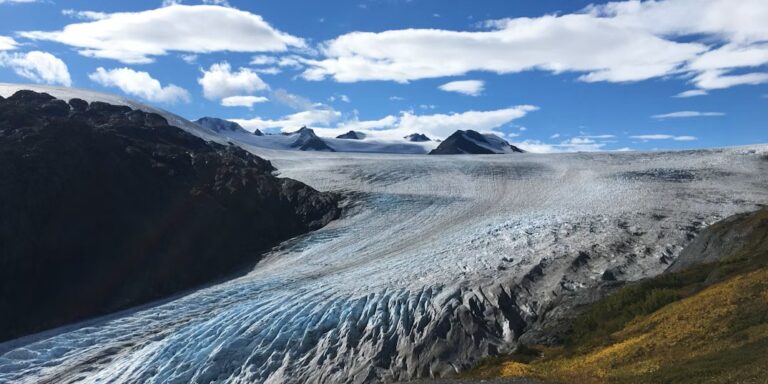In 2025, Swiss glaciers experienced an alarming and unprecedented loss, with nearly 3% of their volume melting away. This rapid decline is a direct result of a snow-poor winter followed by scorching summer heatwaves, both of which contributed to the glaciers’ accelerated melting. Some glaciers have lost more than two meters of ice thickness in just a single season, raising serious concerns about the accelerating impact of climate change on these vital natural formations.
Swiss glaciers have long been considered crucial indicators of climate change. Their gradual retreat over the years has already been a cause for concern, but the rapid pace of ice loss in 2025 has intensified fears of even more dramatic and irreversible environmental consequences. Typically, glaciers are replenished during colder months through snowfall, but the lack of substantial snow accumulation in the winter of 2025 left them vulnerable to the higher-than-usual temperatures during the summer. This combination of factors created a situation where the glaciers were unable to build back the ice lost to previous meltings, compounding the issue.
The consequences of this accelerated ice loss extend far beyond the scenic beauty of the Swiss Alps. Glaciers serve as natural reservoirs, slowly releasing water into rivers that many regions rely on for drinking, farming, and hydropower generation. As the glaciers shrink, the volume of meltwater that is released into these rivers diminishes, which poses a significant threat to agriculture and energy production, especially during the hot summer months when water demand is highest. Regions that are highly dependent on glacier-fed rivers could soon face water shortages, which could affect everything from crop irrigation to public water supplies.
In addition to the immediate effects on local ecosystems and communities, the retreat of glaciers is contributing to the global issue of rising sea levels. Glaciers store vast amounts of freshwater, and as they melt, this water is flowing into the oceans. The added water volume is directly contributing to the rise in global sea levels, which is already threatening coastal cities and communities around the world. Higher sea levels make coastal areas more susceptible to flooding and storm surges, which could lead to catastrophic consequences for millions of people living in vulnerable regions.
The shrinking of Swiss glaciers also serves as a stark visual representation of the larger climate crisis. These glaciers, which have existed for thousands of years, are rapidly disappearing due to the effects of global warming. Their accelerated retreat is a direct reflection of rising global temperatures and the increasing frequency of extreme weather events. Scientists warn that if this trend continues, the effects will be devastating not just for the Swiss Alps but for mountain regions across the world. The rapid loss of glaciers could lead to the complete disappearance of some iconic ice formations, a loss that would have profound implications for both the environment and the people who rely on the resources they provide.
This rapid ice loss has highlighted the urgency of addressing climate change on a global scale. While some may argue about the causes of climate change, the undeniable truth is that the evidence is becoming more and more apparent, and the world’s glaciers are some of the most visible casualties of this environmental shift. The ongoing retreat of glaciers in the Swiss Alps is a wake-up call for the international community to act quickly to mitigate further damage. Experts emphasize the need for stronger global commitments to reducing carbon emissions and accelerating the transition to renewable energy sources. If we continue at the current rate, scientists fear that we will see even more glaciers disappear within our lifetimes, taking with them not just ice but also the critical resources that millions of people depend on.
The loss of Swiss glaciers in 2025 marks a critical turning point in the ongoing climate crisis, underscoring the need for immediate action to address the threats posed by rising temperatures. These glaciers, once considered a permanent fixture in the landscape, are now rapidly vanishing, and with them, the stability of entire ecosystems. If the world continues to ignore the warning signs, the consequences could be even more catastrophic, not just for Switzerland, but for the planet as a whole. The urgent call to action is clear: the time to act on climate change is now, before we lose even more of the natural resources that sustain life on Earth.
Read Also: https://leadrmagazine.com/climate-change-risks-intensify-amidst-policy-challenges/


